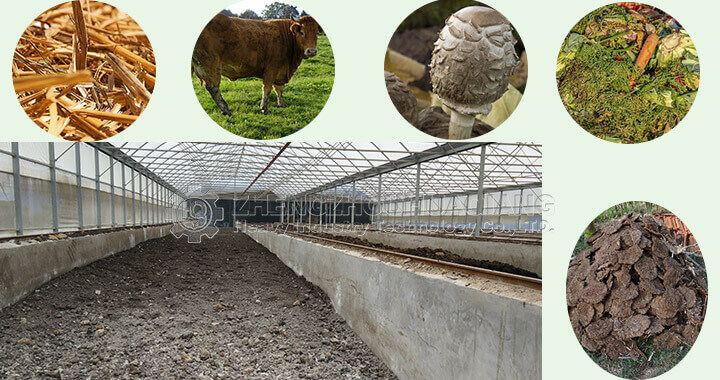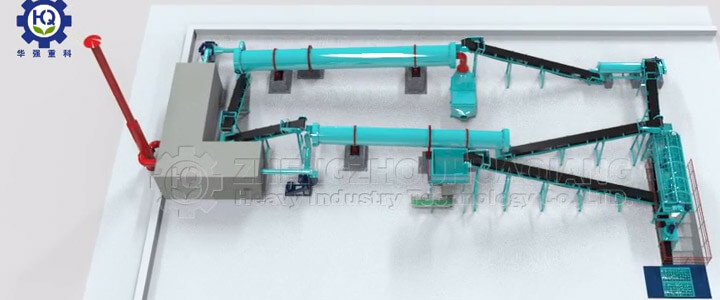The scale of animal husbandry is expanding, and more and more cow dung is produced in cattle farms. It is more and more important to properly handle and utilize the dung. High temperature fermentation of cow manure to produce organic fertilizer is an efficient and environmentally friendly way, which will promote the circulation of livestock manure compost and benefit the development of agriculture.
Infrastructure construction of cow manure organic fertilizer fermentation
Build fermentation tanks, rain shelters, relevant clinker storage sites, organic fertilizer equipment processing workshop and personnel office.
Production technology of cattle manure organic fertilizer
Fresh cow dung (80% moisture content or more) - dehydration (about 60% moisture content) - primary fermentation and re-fermentation - crushing and mixing - granulation - drying and cooling (less than 20% moisture content) - weighing and packaging.
1. Dehydration of fresh cow dung
Fresh cow manure can be dewatered by drying and dewatering machine. We mainly adopt drying method to dewatering, and use dewatering machine to dewatering in rainy days or when time is pressing. The dehydration degree of cow dung is about 60% of water content.
2 Composting fermentation
Cattle manure compost was manufactured by mechanical stirring in fermentation tank with high temperature aerobic fermentation. The compost turner runs along the track of the fermentation tank. While the turning machine runs forward, the rotating stirring part of the lower part stirs the material. The material is thrown backward by centrifugation for a certain distance, and the compost after one fermentation can be transferred to the outlet in about 10-15 days. Because of the fast rotation speed of the turner, it can also crush the agglomerated material or the larger material such as straw while stirring. The turner is set directly above the fermentation tank and is stirred once or twice a day according to the fermentation conditions. After three days, the composting temperature rose to above 70 ℃, and the fermentation period was about two weeks.
The fermented fertiliser is fermented again to ensure that the material is fully cooked. When fermented again, the material is turned once a week. Fertilizer is black-brown or brown when fermentation is completed.
3. Crushing and mixing
Fermentation compost can be used for further processing of organic fertilizer production line. Firstly, the bulk materials in the compost are crushed, and then other NPK fertilizers and nutrients are added to the compost to crush into powder, then mix and send to the granulator to prepare granulation.
4 Organic fertilizer granulation
Organic fertilizer powder is fed into granulator for fertilizer granulation. Different granulator has different particle size and shape.
5 Drying and cooling
The hot air in the dryer makes the moisture of organic fertilizer evaporate rapidly, which meets the storage standard of organic fertilizer. Cooler will cool high temperature particles to normal temperature to prevent the organic fertilizer from absorbing moisture.
6 Weighing packing
The finished commercial organic fertilizer is packed quantitatively by the packing machine and sewed automatically.

